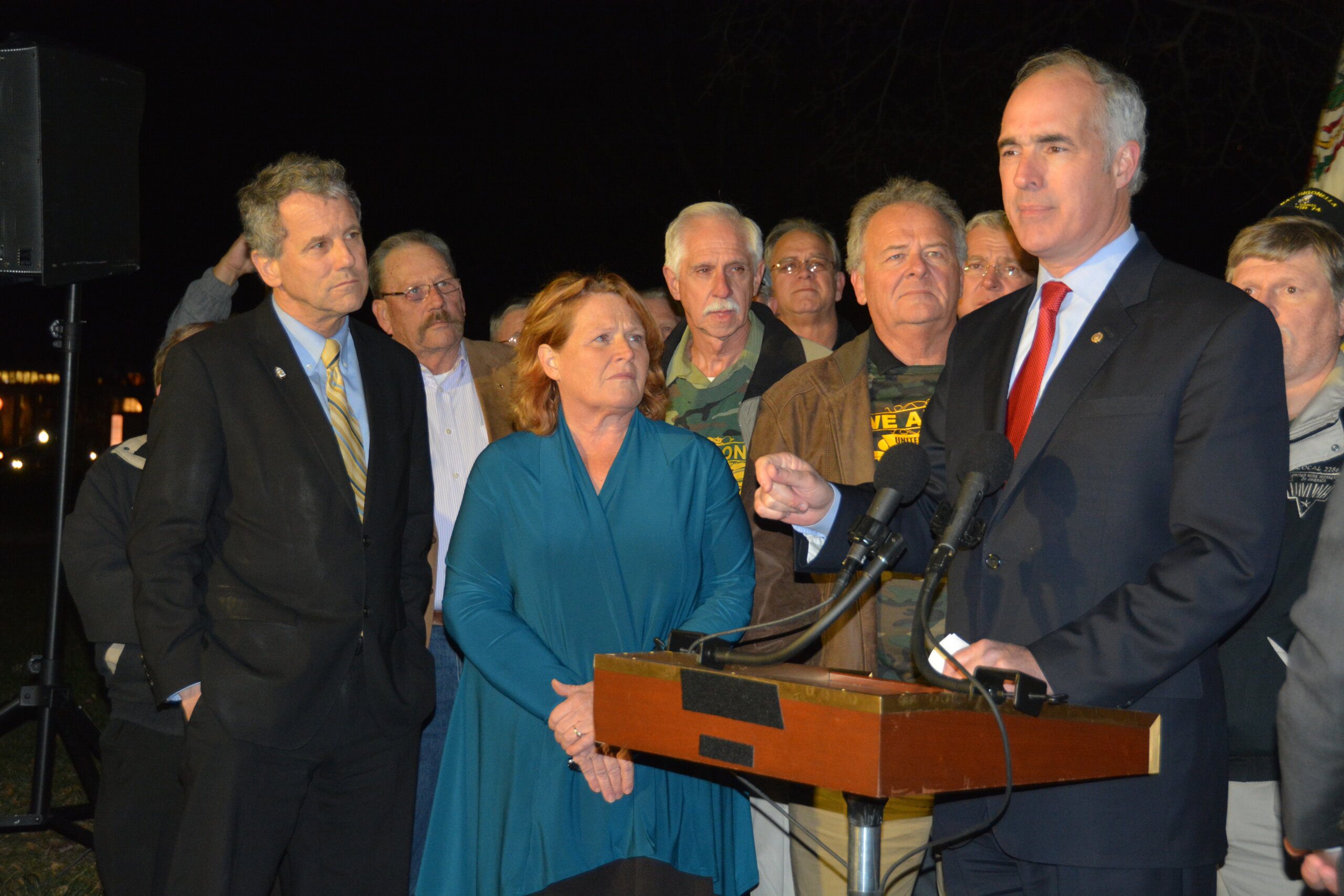Source: Herald-Standard
Date: December 8, 2024
The thick cold air and unforgiving winds did not seem to deter the union workers and their family members who came out to pay their respects on Friday to the men who lost their lives in the Robena Mine explosion 62 years before.
“These miners sacrificed their lives for me to have it better, for us to have it better,” said Charles Knisell, the international vice president of the United Mine Workers of America (UMWA). “There are no words to describe the value of the sacrifices that they’ve made for us.” And while the somber outing was a reminder of a heartbreaking event that saw the death of 37 men – 31 of which belonged to the United Mine Workers of America – it also served as a reminder of the hard-fought triumphs and current struggle of organized labor.
“We have safer air to breathe, we have safer mining conditions, regulations and so forth on a daily basis because of folks like this, folks that died in Robena,” Knisell said.
On Dec. 6, 1962, at around 1:03 p.m., an underground blast at the Robena Mine killed 37 men, during a time in which no regulations were in place in coal mines. An investigation revealed that the explosion was caused by a buildup of methane gas that was likely ignited by a spark from the mine equipment.
“Robena was a terrible disaster. Families couldn’t properly bury their loved ones, caskets were closed. It was a very violent disaster,” said UMWA Secretary-Treasurer Brian Sanson. “But some good (did) come, whether it be in the form of laws that protect our miners or just more diligence being done on behalf of miners.”
It would take another seven years, but in 1969 the federal government adopted the Federal Coal Mine and Health and Safety Act, which led to the creation of the Mine Safety and Health Administration.
Keynote speaker and UMWA International President Cecil Roberts reminded those in attendance that countless lives were forever affected by the explosion.
“Let’s remember the others from this tragedy,” Roberts said. “The others would be the mine rescue team that went down in that mine that day and risked their lives to try to recover their brothers from this disaster.”
Roberts also spoke about the toll it took on families, many of whom lost heads-of-households that day.
“In most cases a bread winner went out that door that day and never came back,” he said. “Somebody, mostly the widows, had to take care of the children, had to make the house payment, the car payment and feed everybody.”
Despite the backdrop of a memorial service, Roberts was able to blend a tone of respect for the dead with a hopeful message for organized labor.
“I believe that coal miners and coal miners’ families are the best people on earth,” he said. “They are ready to fight for the United States. They are ready to fight for their rights, and they’ll stand up and fight when nobody else will.”
The union president also reminded the crowd the importance of organized labor and unions as he recounted the type of conditions coal miners were subjected to before regulations.
“In those days there were no such things as black lung. Miners were dying all over this nation,” he said. “Hundreds of thousands of miners died from black lung because there are no restrictions on the matter in the coal mine – until a union stood up.”
Written by: Zach Petroff






